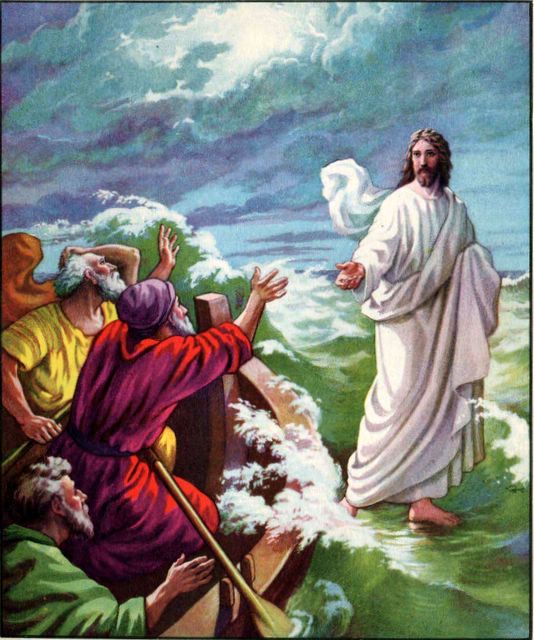The Pharisees heard the crowd murmuring these things concerning Him, and the Pharisees and the chief priests sent officers to take Him. Then Jesus said to them, “I shall be with you a little while longer, and then I go to Him who sent Me. You will seek Me and not find Me, and where I am you cannot come.” Then the Jews said among themselves, “Where does He intend to go that we shall not find Him? Does He intend to go to the Dispersion among the Greeks and teach the Greeks? What is this thing that He said, ‘You will seek Me and not find Me, and where I am you cannot come’?” (John 7:32-36)
The more Jesus teaches, the more the people marvel. How does this man know letters having never studied? Jesus explains to them as He did before: My doctrine is not mine, but His who sent me. Jesus is simply doing the work His Father has sent Him to do. He is simply teaching the things His Father has given Him to teach. Or, put another way, Jesus is saying the words the Father has given Him to say. If the Jews had really believed in God, they would have recognized that Jesus’ teaching came from God. But they didn’t believe. As Jesus does and says the things given to Him by God, His Father, so the Jews, Jesus will later explain, do and say the things of their father, the devil.[1]
The people continue to argue over who Jesus is. Some of them from Jerusalem wonder if He is not the one whom the leaders seek to kill. They see Him speaking boldly in the temple. They muse that perhaps the leaders believe Jesus is the Christ after all. Is their inaction against Jesus their endorsement of Him? Surely, if this man were not the Christ, the leaders would put a stop to His public teaching. After all, He does not teach as the other rabbis, but as one with authority.[2] He makes Himself equal with God.[3]
This is probably only said mockingly, of course. The people have a strange theology. It was Jewish tradition that the Messiah would appear suddenly, and no one would know from where He came.[4] The people thought they knew Jesus. He was the son of Joseph and Mary. He was born in Nazareth, that one-horse town out of which nothing good comes.[5] This would certainly disqualify Him, in their minds, from being the Christ. Nevertheless, this discussion begins to worry the Jewish leaders and they again seek to kill Him. Jesus, however, cries out in the temple: You both know Me, and you know where I am from; and I have not come of Myself, but He who sent Me is true, whom you do not know.
Jesus tell the people that, yes, they know Him in an earthly sense; they do not know The One who sent Him. They may know that He lived in Nazareth, but they do not understand that He is the Son of God, sent by His Father to vanquish sin, death, and the devil. The Jews eventually get worried enough by the murmuring of the people to send officers to arrest Jesus. They are unsuccessful because, as Jesus said previously, His time had not yet come. I shall be with you a little while longer and then I go to Him who sent me. You will seek me and not find Me, and where I am you cannot come. They surmise that Jesus intends to escape, and go to teach the Jews who live among the Gentiles. These people, who have eyes but cannot see, and ears but cannot hear, continue to judge Jesus using earthly standards.[6] Jesus is telling them that soon He will die, and rise and go to His Father in heaven. Since they reject Him, they cannot follow Him where He goes.
Following Jesus’ example, we say the words given to us to say. We confess that Christ died for our sins, that He was buried, and that He rose again from the dead. And, when He had overcome the sharpness of death, He opened the kingdom of heaven to all believers. He sits at the right hand of God, in the glory of the Father. We believe that He shall come to be our Judge. The teaching is not our own, but comes from Jesus, the Christ, the one by whom we are sent. We believe, teach, and confess that which we are given, because the one who gave it is true.[7]








